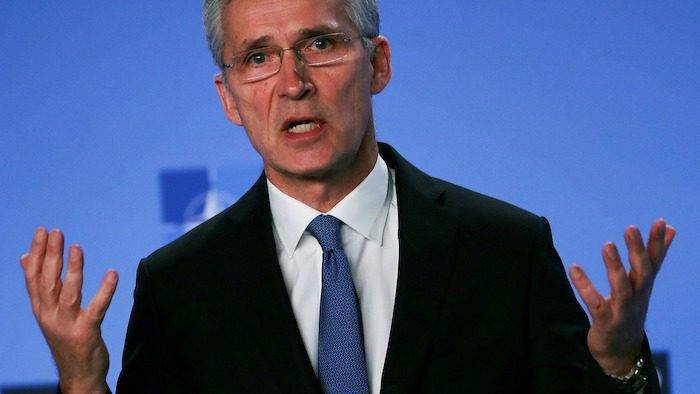Ukraine could lose the war against Russia without additional military equipment from the United States and its allies, NATO’s top civilian official has warned.
“There is an urgent need for more ammunition, more weapons for Ukraine,” NATO Secretary General Jens Stoltenberg said Monday while on a trip to South Korea. “If they don’t get that, they won’t be able to resist and repel the Russian invaders.”
That warning acknowledges more doubts about the outcome of the war than many Western officials have been willing to voice over the past year. Stoltenberg offered that assessment while stressing the “interconnected” security needs of NATO and the Indo-Pacific democracies, a general statement underscored by his suggestion that South Korea send weapons to Ukraine.
“I urge the Republic of Korea to go ahead and step up,”
Stoltenberg said at the CHEY Institute in Seoul. “On the specific question of military support, I would say that this is, ultimately, a decision that you must make… if you believe in freedom, if you believe in democracy, if you do not want autocracy and tyranny to win, So they need weapons.”
South Korea has become a heavyweight in the world of arms exports, thanks in part to the signing of a deal for Poland to purchase some 1,000 South Korean main battle tanks built by Hyundai, along with more than 670 howitzers and 48 light fighters.
Poland has been one of NATO’s main allies in sending aid to Ukraine, so the deal may have contributed to Russian President Vladimir Putin warning Seoul not to send weapons to Ukraine.
South Korean President Yoon Suk-yeol responded by stating that South Korea has only sent “humanitarian and peaceful aid” to Ukraine while ignoring Putin’s threats. “In any case, it is a matter of our sovereignty, and I would like you to know that we try to maintain peaceful and good relations with all the countries of the world, including Russia,” the South Korean president said.
Stoltenberg acknowledged that North Korea represents “a clear and present danger” to South Korea while hinting that a Putin victory in Ukraine could embolden Kim for further aggression.
“North Korea has also delivered rockets and missiles to the Russian Wagner Group, further fueling Russia’s war of aggression against Ukraine,” he said. “We must continue to support Ukraine as long as it takes. Because if President Putin wins, the message to him and other authoritarian leaders will be that they can get what they want through the use of force.”
In a separate appearance with Stoltenberg, South Korean Foreign Minister Park Jin expressed his gratitude to “NATO and NATO member countries who came to help us… during the Korean War,” which lasted from 1950 to 1953 and remains technically unresolved. (The violence ended through an armistice, but North and South Korea have not signed a peace treaty.)
“Given today’s unprecedented global challenges, we believe that solidarity between countries that share values of freedom, democracy, and the rule of law is more important than ever,” the South Korean foreign minister said. “We look forward to working more closely with NATO to address today’s new security threats.”
Stoltenberg avoided “speculating” about how NATO would respond if North Korea attacked South Korea but acknowledged that many non-nuclear NATO members, such as South Korea and Japan, live under the US nuclear umbrella.
“We do not believe that a world in which NATO and the NATO allies, the United States, the United Kingdom, and France – which are the three NATO allies with nuclear weapons – that, if we get rid of our nuclear weapons, and countries like Russia, or China and North Korea, keep theirs, that will not be a safer world, it will be a more dangerous world,” he said.


